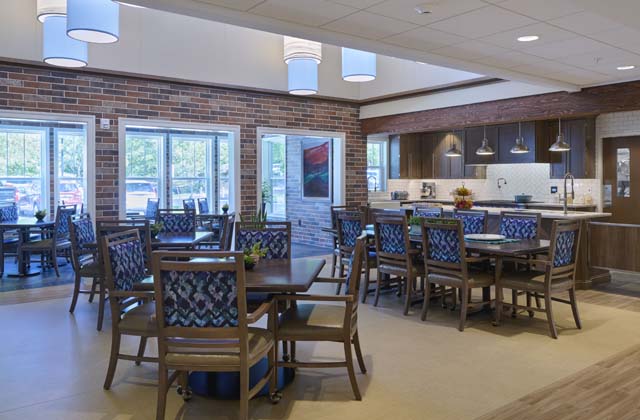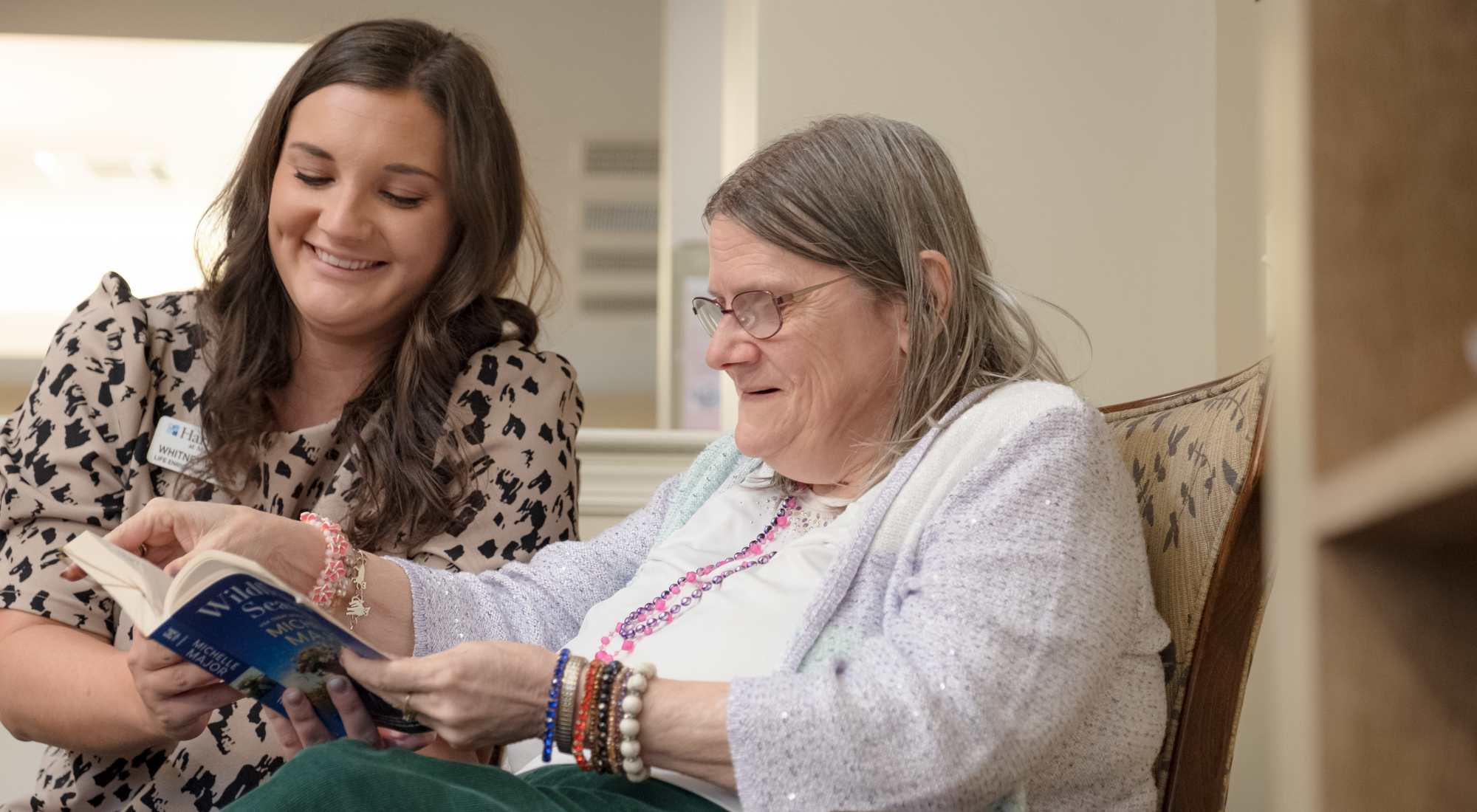What Sets Small Memory Carehomes Charlotte Apart from Larger Facilities
All About Memory Care Solutions: Why Small Memory Treatment Houses Are a Fantastic Option
Memory treatment solutions play a vital function in sustaining individuals with Alzheimer's and dementia. Small memory care homes attract attention for their personalized strategy and intimate setting. With reduced staff-to-resident proportions, these homes promote stronger connections and tailored treatment. Citizens take advantage of boosted social interactions and a safe setting. As family members check out options, comprehending the distinct benefits of little memory care homes comes to be essential. What elements should be considered when selecting the appropriate home?
Recognizing Memory Care Services
While lots of may know with general elderly care choices, understanding memory care services is essential for family members dealing with the challenges of cognitive decrease. Memory treatment particularly accommodates individuals with conditions such as Alzheimer's condition and other kinds of dementia. These services give an organized atmosphere that concentrates on boosting the high quality of life for residents via specialized care and support.Memory care centers are made to guarantee security and safety, typically including safeguarded atmospheres to prevent straying. Educated staff participants are readily available all the time to assist with daily activities, medication administration, and personal treatment. In addition, memory care programs commonly consist of cognitive excitement tasks, customized to involve citizens and promote psychological health. Family members can take advantage of recognizing these services, as they make it possible for notified choices concerning their liked ones' treatment, making certain that their specific needs and preferences are dealt with in a caring and helpful fashion.
The Benefits of Tiny Memory Treatment Houses
Little memory treatment homes supply distinct advantages that can greatly boost the high quality of life for homeowners with cognitive impairments. One significant advantage is the intimate atmosphere, which permits tailored interactions amongst team and residents. This smaller sized setting promotes significant relationships, decreasing feelings of isolation and anxiousness commonly experienced by individuals with memory issues.Additionally, the reduced staff-to-resident proportion in small memory care homes enables caretakers to give more alert guidance and support. This approach not just boosts security yet additionally advertises a complacency for the residents.Moreover, small memory treatment homes can adjust swiftly to the unique demands and preferences of each citizen, enabling an extra homelike environment. Such a setting can encourage social interaction and participation in tasks, ultimately enriching the daily experiences of those living with cognitive disabilities.
Personalized Treatment Program for Locals
Customized care plans are essential in memory treatment homes, as they accommodate the one-of-a-kind demands and preferences of each citizen. These plans begin with extensive assessments conducted by knowledgeable specialists, who examine cognitive capabilities, case history, and individual passions. This tailored method warranties that care is not just reliable yet also considerate of each person's self-respect and autonomy.Moreover, personalized care plans are versatile, permitting changes as locals' needs evolve gradually. This flexibility fosters a complacency and experience, which is essential for people living with memory obstacles. Caregivers are educated to carry out these strategies consistently, supplying assistance that lines up with the citizens' routines and preferences.Ultimately, customized care strategies improve the lifestyle for citizens by advertising self-reliance, well-being, and engagement, making them an essential aspect of memory treatment services in small memory care homes.
Producing a Home-Like Atmosphere
Developing a home-like atmosphere is important for cultivating comfort and familiarity in memory care settings, as it significantly affects locals' emotional health. Small memory treatment homes usually focus on customized touches, such as cozy shade combinations, household images, and acquainted furniture setups, which aid citizens feel a lot more secure. Including components reminiscent of a traditional home, like comfy home and common locations, urges a sense of belonging.Moreover, using natural light and outside spaces can boost the atmosphere, advertising relaxation and tranquility. Personnel play a significant function in keeping this atmosphere by involving with citizens in a thoughtful way, treating them like family members. Routine activities, such as cooking or gardening, can also add to a home-like feel, providing possibilities for locals to take part in purposeful experiences. Overall, producing a supporting setting sustains cognitive feature and psychological security, making it a vital element of memory treatment services.
Improved Social Communication and Community
Improved social communication and community are necessary components of memory treatment solutions. By promoting individualized social interaction and creating a family-like ambience, these solutions promote significant links among locals. Group events and activities additionally encourage involvement, helping individuals feel more consisted of and sustained.
Customized Social Engagement
While social communication is essential for general wellness, lots of individuals with memory disabilities often have a hard time to involve meaningfully with others. Individualized social interaction in memory care homes addresses this difficulty by developing tailored activities that deal with residents' distinct passions and capacities. By focusing on private preferences, caretakers can promote connections that resonate deeply with each individual. Activities such as art treatment, music sessions, and guided conversations promote cognitive excitement and psychological expression. Furthermore, small team settings urge friendship and permit even more intimate communications, improving feelings of belonging. This technique not just deals with feelings of seclusion but also equips residents to preserve a sense of identification, inevitably adding to improved mental wellness and top quality of life.
Family-like Ambience
In a memory care setting, cultivating a family-like ambience significantly enhances social communication and builds a sense of community amongst locals. Smaller sized memory treatment homes often focus on intimate settings, enabling locals to form closer recommended you read links with one another and personnel. This nurturing ambience promotes trust, which is necessary for people with memory problems. Homeowners are most likely to involve in discussions and share experiences, creating a helpful network that eases feelings of solitude. The knowledge of shared spaces and routines adds to a feeling of belonging, further urging social interaction (personalized memory care). In such setups, psychological bonds prosper, resulting in enhanced total health and a higher high quality of life for homeowners as they browse their day-to-day experiences with each other
Group Activities and Occasions

Safety and Protection Features in Small Residences
Many small homes made for memory treatment include important security and security attributes to guarantee the wellness of homeowners. These homes commonly utilize safe access and departure indicate prevent straying, a typical worry among individuals with memory impairments. Furthermore, surveillance systems and alarm system devices boost surveillance, making sure that team can promptly respond to any kind of uncommon activities.Interior formats are customized for security, with reduced risks such as sharp edges and clutter-free pathways. Handrails and non-slip flooring are normally mounted to lower the risk of drops. Team members are trained in emergency situation methods, guaranteeing they are gotten ready for numerous situations.Moreover, customized treatment plans may include assessment of specific safety and security demands, offering tailored services for each and every resident. Overall, these safety and safety attributes create a caring setting where citizens can flourish link while preserving their self-respect and independence.
How to Select the Right Memory Treatment Home
Just how can households assure they select the most ideal memory care home for their enjoyed ones? The decision calls for cautious consideration of a number of variables. First, families must evaluate the facility's team credentials and training, making sure that caretakers are experienced in taking care of memory-related conditions. Next off, it's essential to assess the home's atmosphere, concentrating on safety attributes and whether it fosters a sense of area and belonging. Visiting the center can supply understanding right into day-to-day activities and the social atmosphere, which are crucial for mental stimulation and psychological well-being. Furthermore, family members need to make inquiries concerning the care strategies supplied, ensuring they are tailored to specific demands. Thinking about the home's area and ease of access for household gos to can contribute to a smoother shift. By attending to these aspects, family members can make an educated decision that prioritizes their enjoyed one's comfort and top quality of life in a memory care setting.
Frequently Asked Inquiries
What Certifications Should Staff Members in Memory Treatment Residences Have?
Personnel in memory care homes ought to possess relevant qualifications, experience in dementia care, solid communication skills, and empathy. Recurring training in behavioral monitoring and therapeutic treatments boosts their capacity to sustain locals successfully.
Just How Do Memory Care Solutions Differ From Traditional Assisted Living?
Memory care services focus particularly on people with memory disabilities, providing specific assistance and structured atmospheres. In comparison, traditional assisted living uses basic help with daily activities, lacking the tailored technique essential for those with cognitive challenges.
What Kinds of Tasks Are Supplied in Memory Treatment Residences?
Memory care homes typically provide a range of tasks made to involve homeowners. Common options include art treatment, songs sessions, cognitive video games, workouts, horticulture, and social events, all aimed at enhancing well-being and cognitive function.
Can Citizens Bring Their Own Valuables to Memory Treatment Houses?
Homeowners can usually bring their own items to memory care homes, allowing them to individualize their space - personalized memory care. This practice assists produce an acquainted environment, advertising convenience and a sense of identification for the individuals

How Are Relative Entailed in the Care Process?
Member of the family play a vital role in the treatment process, often joining decision-making, going to care conferences, and offering emotional support. Their participation fosters a collective atmosphere, improving the citizen's general well-being and lifestyle. While many may be acquainted with basic senior care options, understanding memory treatment services is crucial for family members dealing with the obstacles of cognitive decrease. These services supply an organized atmosphere that concentrates on improving the high quality of life for citizens with specialized care and support.Memory treatment facilities are designed to assure security and safety, typically featuring secured environments to prevent roaming. Customized care plans are important in memory treatment homes, as they provide to the special needs and preferences of each homeowner. Staff members in memory treatment homes must have relevant qualifications, experience in mental deterioration treatment, solid communication abilities, and empathy. Memory care services focus specifically on individuals with memory problems, why not find out more providing specialized assistance and organized atmospheres.